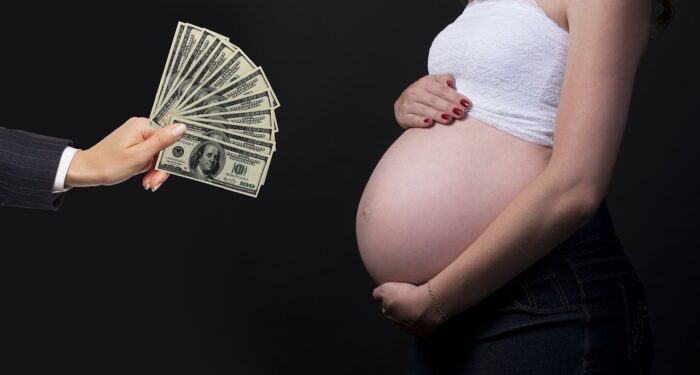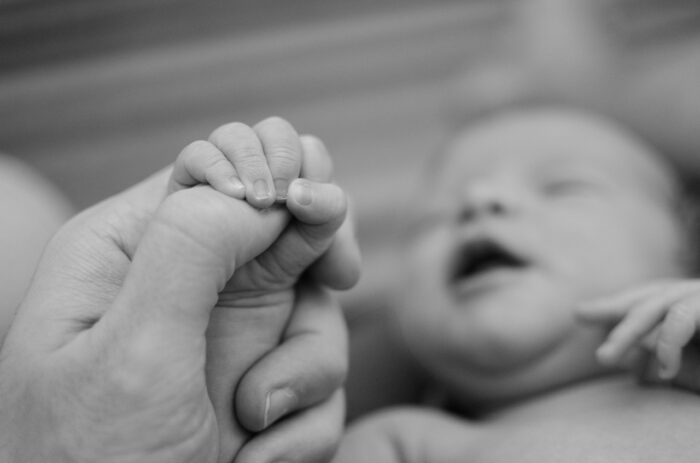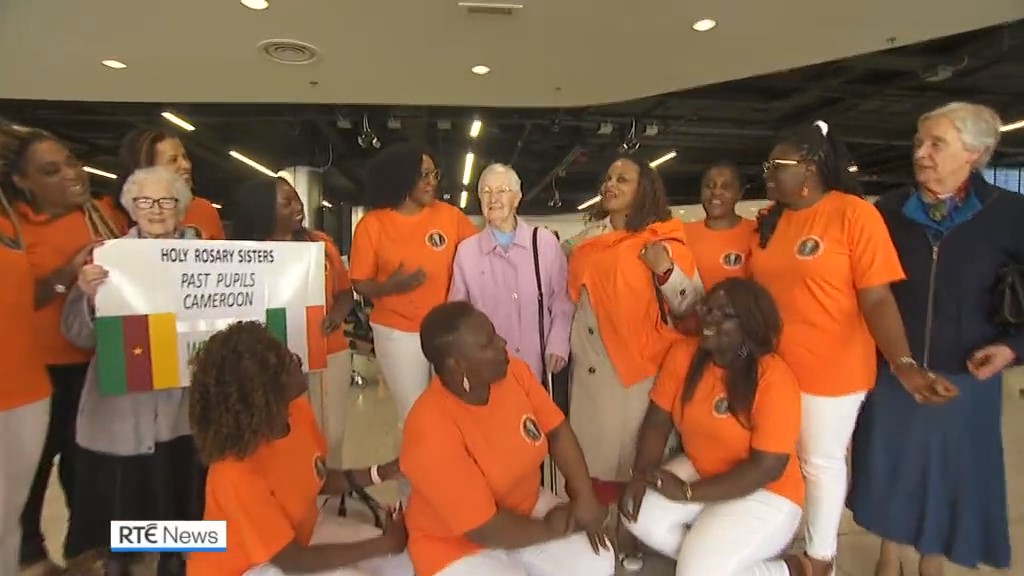
The Government has delayed commencing surrogacy laws amid concerns they could clash with an EU directive aimed at preventing human trafficking.
In April 2024, the EU expanded its directive against trafficking persons to include the “exploitation of surrogacy”. The Government is obliged by law to adhere to such directives.
EU nations such as France, Germany, Italy, Poland, Austria, Sweden, Norway and Spain had all banned surrogacy already. In Greece and the UK it is legal only if it is non-commercial, although in practice, thousands can still be earned by surrogate mothers under the cover of ‘reasonable expenses’.
Despite this, Ireland legalised the use of international commercial surrogacy in June 2024.
However, that law has not been put into operation by the Government, with Health Minister Jennifer Carroll MacNeill saying she cannot give a timeline as to when it will be commenced.
The Irish Human Rights and Equality Commission (IHREC) said Ireland has an obligation to ensure its laws do not enable exploitative surrogacy and has raised concerns that Irish attempts to enable the use of international surrogacy could thwart other countries’ efforts to clamp down on commercial surrogacy and trafficking.
Rónán Mullen, an independent senator who opposed the surrogacy provisions last year, said that it “allows for the commissioning of poor women in poor countries to provide their babies to richer individuals, financially advantaged single people or couples here in Ireland,” he said.
“That can only be described as a form of modern-day trafficking and slavery.”

A rise in dog ownership worldwide reflects a growing desire to nurture without the demands of raising children, researchers have suggested.
As most of the world now experiences “sub-replacement fertility”, dog ownership has gained in popularity and, in most European countries, a quarter to half of households own at least one dog.
While dogs have long been considered family members, the researchers found that “an increasing number of owners have begun to regard their dogs as their children.”
They added that “some owners might see their dog as a child surrogate to spoil, others actively choose to have dogs and not children”. Owning a dog could “offer an opportunity to fulfil a nurturing drive similar to parenting, but with fewer demands than raising biological offspring”, the researchers said.
The study, published in the journal European Psychologist, asked: “Given the two trends of more dogs being viewed as family members and a decline in the number of children, an important question arises: are people choosing dogs as a substitute for children?”

The natural rate of population, that is births over deaths, has dropped in half in just 10 years, according to new CSO data.
This is despite the overall population steadily increasing during the same period.
Last year births exceeded deaths by 18,889. This compares with a figure of 38,367 ten years previously.
The slowing rate of increase has occurred consistently since 2014, except for 2021 when the rate of natural increase rose from 4.8 per 1000 to 5.0, primarily because a lot of people delayed having children the previous year when the Covid pandemic began.
In 2014, the usual resident population was estimated at 4,645,400. In 2024, this had risen to 5,380,300, chiefly through immigration.
The combination of natural increase and positive net migration led to a population increase of 98,700 (+1.9%) in the year to April 2024. This was the largest population gain since 2008 when the population increased by 109,200.

Nigel Farage would ditch the two-child benefit cap to make having children “a bit easier for British families”.
The cap blocks parents from claiming Universal Credit or child tax credit for more than two children.
It was introduced by the Conservatives in 2017 to cut the benefits bill and has been retained by the Labour Government.
It has been loudly criticised by leaders of the Christian Churches, with the archbishop of Canterbury calling it “cruel” while the Catholic Bishops of Northern Ireland condemned it as “morally abhorrent”.
In a major speech, Farage said scrapping the two child benefit cap would mean that for lower paid workers, it would make “having children just a little bit easier for them. It’s not a silver bullet. It doesn’t solve all of those problems, but it helps them.”
He added that it would be aimed at British families, not “at those that come into the country and suddenly decide to have a lot of children.”
The Prime Minister, Keir Starmer, has allegedly been open to such a change, in order to tackle child poverty, but has faced pushback from his Chancellor, Rachel Reeves, regarding the £3.5 billion cost, with a widespread expectation that she would raise taxes to fund it.
The Conservatives continue to defend the benefit cap.

The move stems from an agreement in place since 2006 to review the pension age every five years to align it with life expectancy.
Currently at 67, it rises to 68 in 2030, and to 69 in 2035.
The latest change, to 70 by 2040, was approved last Thursday in the country’s legislature, with 81 votes in favour and 21 against.
The rise is needed in order to be able to “afford proper welfare for future generations,” employment minister Ane Halsboe-Jørgensen said in a press release Thursday.

The number of deaths continues to exceed the number of births across the EU, in a trend that has now been occurring for almost ten years, according to the latest Eurostat figures. Deaths now outnumber births by around a million.
Ireland still has the youngest population in Europe relatively speaking, but it is also ageing rapidly.
In 2023, the birth rate for all EU countries stood at 8.2 per 1,000 while the death rate was 10.8 per thousand, resulting in a natural population decrease of 2.6 per 1000.
The population decrease was a slight improvement on the previous year’s figures which had the birth rate at 8.7, the death rate 11.5, and a natural population decrease of 2.9 per 1000. But that was during the pandemic.
However, 2023’s crude birth rate marked a new low, dropping from 10.1 live births per 1000 persons in 2003 to 8.2 in 2023.
In March, Eurostat reported a record drop in children being born in the EU in 2023.
3.67 million babies were born in the EU that year, a 5.4% decrease from the 3.88 million in 2022. This was the largest annual decline recorded since 1961.
The total fertility rate in 2023 was 1.38 live births per woman in the EU, down from 1.46 in 2022.

The man who bombed a California fertility clinic last week, taking his own life and injuring four others, appears to have been motivated by an ultra-extreme anti-birth ideology which thinks humans are a blight upon the planet, according to police.
Dubbed ‘efil-ism’ — “life” spelled backwards — supporters of the philosophy argue that people should not have children in order to bring the human race to extinction.
In an online manifesto attributed to him, the bomber dubbed his views “pro-mortalism.”
“All a promortalist is saying is let’s make it happen sooner rather than later (and preferably peaceful rather than some disease or accident), to prevent your future suffering, and, more importantly, the suffering your existence will cause to all the other sentient beings, . . . The end goal is for the truth (Efilism) to win, and once it does, we can finally begin the process of sterilizing this planet of the disease of life.”
Anti-natalists oppose procreation for a variety of reasons. Some believe humans are unfairly born without consent into a life of suffering, while others cite global overpopulation and concerns about climate change.
While it is a fringe philosophy, circulating primarily among a small group of online adherents, that opposes human life in every form, a more academic version of the philosophy called anti-natalism is primarily associated with the South African philosopher David Benatar, who has written extensively on the thesis.

Patients in hospices will not be protected from offers of assisted suicide, even in religious-run homes, according to critics of a proposed bill going through the UK Parliament.
On Friday the House of Commons rejected an amendment to protect hospices from having to provide assisted suicide on their premises.
While advocates of the bill implied that the amendment was unworkable, Professor David Albert Jones, Director of the Anscombe Bioethics Centre, said that without it, the Bill “would allow doctors to raise the issue proactively with patients, and to provide patients with lethal drugs, and be present with patients when they took these drugs, all within the walls of a Catholic hospice or nursing home”.
He added: “Voluntary aided hospices would have no legal way to avoid becoming suicide clinics. Catholic patients would have no safe haven where they could receive palliative care without the threat of being offered assistance in suicide”.
“Hospices could be compelled to provide assistance in suicide or forced to close. This Bill not only threatens the right to life of vulnerable patients, it threatens freedom of conscience and freedom of religion”.

The loss of religion and fulfilment go hand in hand according to a new global survey led by Harvard academics published this week.
Across 22 countries in six continents, over 200,000 participants for five years, the Global Flourishing Study attempted to glean just who in the world actually feels content.
While the questions asked of the survey’s participants were varied, ranging from financial stability to physical health, sense of purpose to childhood experiences and relationships, the report’s authors suggest a widespread correlation can be made between those nationalities who feel most fulfilled and those with the highest religious observance.
“Religious service attendance was one of the factors most consistently associated with present or subsequent wellbeing, across countries and across outcomes,” the report, led by Prof Tyler VanderWeele, outlines.
It highlighted the “declining religiosity of more economically advanced nations” suggesting: “We may need a reconsideration of spiritual pathways to wellbeing.”

There is appetite for a push in the Dail to stop children from preparing for the sacraments in Catholic schools, a Senator has said.
The Social Democrats proposed the move and received strong support from Sinn Fein among others.
However, Aontú Senator Sarah O’Reilly, said the proposal lacks popular support: “children don’t want it, teachers don’t want it, and parents don’t want it. So, essentially, the Social Democrats are bringing forward a motion that nobody has any appetite for,” the Cavan Senator said.
Aontu Deputy Paul Lawless, a former teacher, accusing the Social Democrats of pushing an “anti-pluralist” agenda.
“The Social Democrats are seeking to ultimately deny the rights of thousands of families across Ireland to educate their children in the ethos of their children,” Lawless said.
He added that while his party supports the divestment programme, the Government has faced difficulties because parents are “happy overwhelmingly with faith-based education, and are seeking to support that in the surveys and consultations that happen.”